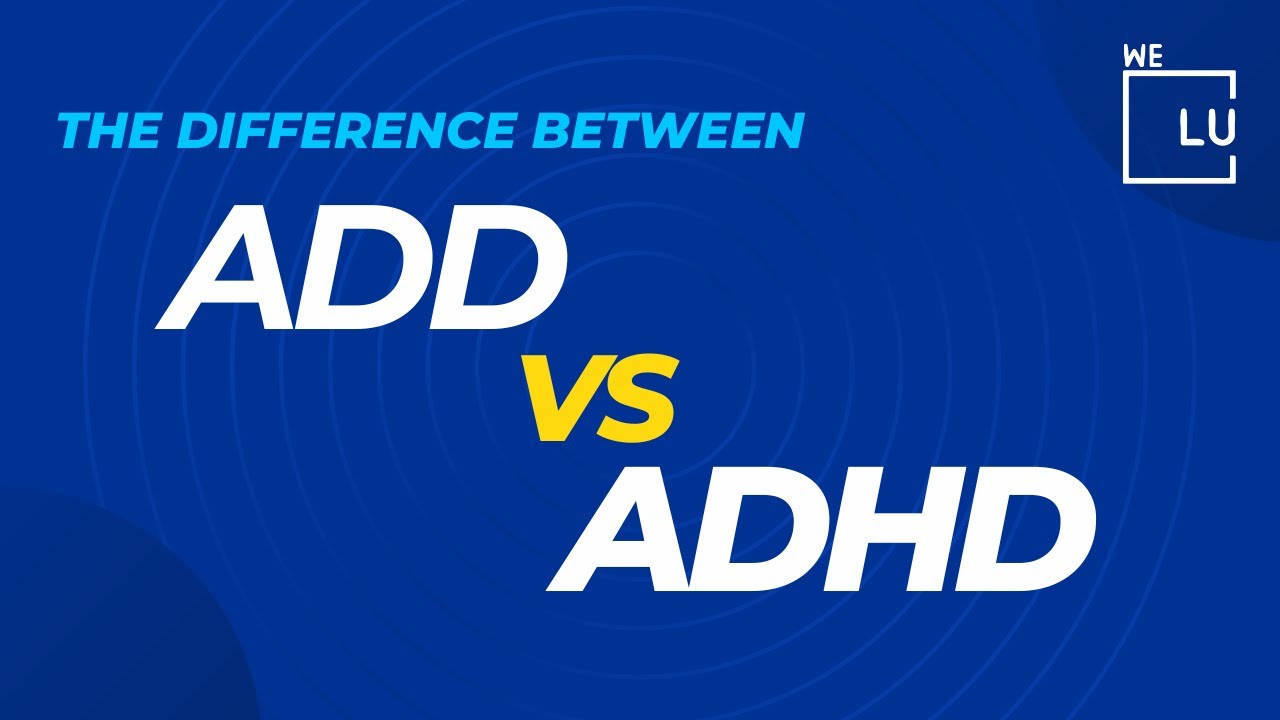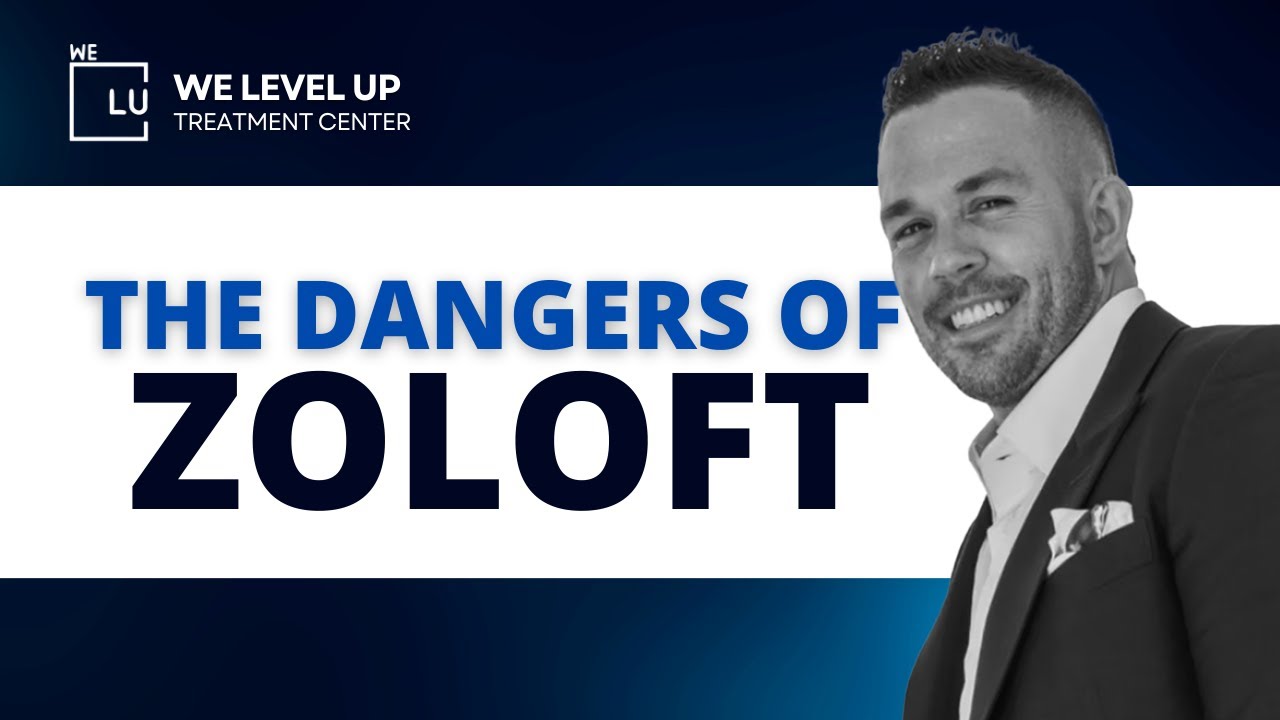What Is ADHD?
Attention-deficit/hyperactivity disorder (ADHD) is a neurodevelopmental condition characterized by distinct presentations that shape how it manifests in individuals. Even though ADHD is predominantly known as a childhood disorder, it is increasingly recognized that Adults can experience similar problems. ADHD symptoms can grow with the individual and change throughout a lifetime, according to the CDC [1].
ADHD expresses itself in three distinct types—inattentive, hyperactive-impulsive, and combined—each variety represents a particular combination of attention, activity, and impulsivity. Exploring these differences provides valuable insights into the various experiences of persons with ADHD. Going through the proper diagnosis process and consultations with Medical Professionals can help create tailored methods for managing the symptoms of each type of ADHD.
If you are seeking compassionate and effective ADHD treatment, consider We Level Up TX Mental Health Treatment Center. We help those struggling with ADHD and other co-occurring illnesses, addiction, and more. Our personalized approach prioritizes comprehensive care for lasting improvement. Contact us today to start your dual-diagnosis mental health treatment now!
Types of ADHD
According to the CDC, ADHD can present itself in three significant ways, mainly depending on the kind of symptoms that manifest the strongest in an individual. [1]
- Predominantly Inattentive Presentation (ADHD-PI):
- Predominantly Hyperactive-Impulsive Presentation (ADHD-HI):
- Combined Presentation (ADHD-C):
ADHD Inattentive Type
Individuals with ADHD Inattentive Type, also known as Predominantly Inattentive Presentation (ADHD-PI), primarily struggle with inattentive behaviors, and their difficulties often center around sustaining attention and focusing on tasks.
- Difficulty Sustaining Attention: Individuals find it challenging to sustain attention on tasks, leading to frequent mistakes or incomplete work. They may quickly become bored with activities that require prolonged mental effort.
- Easily Distracted: External stimuli can easily divert their attention, making staying focused on a specific task or conversation challenging. Background noise or other environmental factors may disrupt their concentration.
- Forgetfulness: Individuals may often lose track of personal items, forget appointments, or fail to remember to complete chores or assignments.
- Disorganization: Organization skills may be impaired, leading to a messy living or working environment. Keeping track of belongings, managing time, and following through on plans can be particularly challenging.
- Difficulty Following Instructions: Processing and following through on instructions can be problematic. This may result in mistakes in work or assignments, as individuals may miss important details.
- Avoidance of Tasks Requiring Sustained Mental Effort: Individuals with ADHD Inattentive Type may avoid tasks that demand prolonged mental effort or sustained focus, even if they can complete them.
- Trouble with Time Management: Managing time effectively can be a significant challenge. Individuals may struggle with estimating how long tasks will take, leading to procrastination or rushed efforts.
- Lack of Attention to Detail: Inattentiveness can lead to overlooking details, contributing to errors in schoolwork, work assignments, or other tasks that require precision.
ADHD Hyperactive-Impulsive Type
ADHD Hyperactive-Impulsive Type, also known as Predominantly Hyperactive-Impulsive Presentation (ADHD-HI), is characterized by a prominent display of hyperactive and impulsive behaviors, often without significant inattentiveness.
- Hyperactivity:
- Individuals with this subtype often exhibit excessive physical activity and restlessness.
- They may struggle with sitting still and frequently engage in behaviors like fidgeting, tapping, or constantly moving.
- Impulsivity:
- Impulsive behaviors manifest in actions without careful consideration of consequences. Such as difficulty waiting for their turn, frequently interrupting conversations, and acting on immediate desires without thinking through potential outcomes.
- Talkativeness:
- A common trait is excessive talking, often impulsively blurting out comments or responses. They also have difficulty controlling the volume and frequency of their speech.
- Inability to Wait:
- Patience is often challenging, and individuals may struggle with waiting in lines, taking turns, or waiting for their chance to speak.
- Risk-Taking Behavior:
- Impulsivity can lead to engaging in risky activities without considering potential dangers.
- This behavior may manifest in social and physical contexts, increasing the likelihood of accidents or conflicts.
- Difficulty Engaging in Quiet Activities:
- Tasks that require prolonged periods of concentration or quiet may be particularly challenging for individuals with ADHD Hyperactive-Impulsive Type.
- Interrupting Others:
- Individuals may frequently interrupt conversations, contributing to challenges in communication and social interactions.
- Restlessness:
- A pervasive sense of restlessness characterizes this subtype, making it difficult for individuals to stay still for extended periods.

ADD vs ADHD
“ADHD” is the proper clinical term for Attention-deficit hyperactivity disorder. While it used to be called “ADD” in the 80s, the destination for the disorder was changed to explain better all the different ways ADHD can show up. So, even if you hear “ADD” sometimes, “ADHD” is the proper term for this condition today.
Skip To:
Learn More:
- Attention-Deficit Hyperactivity Disorder (ADHD)
- Amphetamine vs Methamphetamine
- Amphetamine Effects
- Adderall Addiction
- Adderall Withdrawal
- Prescription Drug Abuse, Causes, Symptoms, and Treatment
- Cognitive Behavioral Therapy
- Mental Health Treatment. Warning Signs, Types of Treatment, Therapies, Medications & How To Get Help.
ADHD Combined Type
ADHD Combined Type, as the name suggests, is characterized by the presence of both inattentive and hyperactive-impulsive symptoms. This subtype is often referred to as the most common form of ADHD. Individuals with ADHD Combined Type exhibit a diverse range of behaviors that encompass difficulties in sustaining attention, hyperactivity, and impulsivity.
- Inattention:
- Similar to ADHD Inattentive Type, individuals with the combined subtype struggle with sustaining attention on tasks, leading to mistakes and incomplete work.
- They may be easily distracted, forgetful, and have difficulty following instructions.
- Hyperactivity:
- Individuals with ADHD Combined Type also display hyperactive behaviors such as restlessness, fidgeting, and difficulty remaining seated for extended periods.
- They may engage in excessive physical activity, often appearing as if “driven by a motor.”
- Impulsivity:
- Impulsivity is a notable aspect of this subtype, involving hasty decision-making, difficulty waiting for turns, and a tendency to act without considering the consequences.
- Talkativeness:
- Excessive talking, impulsively interrupting conversations, and struggling with turn-taking in communication are common traits of the combined subtype.
- Difficulty Engaging in Quiet Activities:
- Like ADHD Hyperactive-Impulsive Type, individuals with the combined subtype find it challenging to engage in tasks that require sustained concentration or quiet environments.
- Organization and Time Management Issues:
- Individuals may experience organization and time management difficulties, leading to a messy living or working environment and procrastination.
- Lack of Attention to Detail:
- Inattention may contribute to a lack of attention to detail, affecting the quality and accuracy of work in tasks requiring precision.
- Academic and Social Challenges:
- The combined presentation often results in academic challenges due to difficulties with focus, completing assignments, and following instructions.
- Social interactions may also be impacted, as impulsive behavior and difficulty with turn-taking can affect relationships.
Get Help. Get Better. Get Your Life Back.
Searching for Accredited Drug and Alcohol Rehab Centers Near You? We Level Up Texas Is Opening Soon!
Even if you have failed previously and relapsed, or are in the middle of a difficult crisis, we stand ready to support you. Our trusted behavioral health specialists will not give up on you. When you feel ready or just want someone to speak to about therapy alternatives to change your life call us. Even if we cannot assist you, we will lead you to wherever you can get support. There is no obligation. Call our network hotline today.
FREE Addiction Hotline – Call 24/7Three Types of ADHD and Their Symptoms Compared
Attention Deficit Hyperactivity Disorder symptoms display in myriad forms for different people. While inattention, hyperactivity, and impulsivity are the three core features of the disorder, the prevalence and intensity of symptoms can vary greatly. There are three distinct types of Attention Deficit Hyperactivity Disorder shown in the below table.
Chart of the Three distinct types of Attention Deficit Hyperactivity Disorders
| ADHD Symptoms | Inattention is a prominent feature. | (2) Predominantly Hyperactive-Impulsive ADHD | (3) Combined Presentation ADHD |
|---|---|---|---|
| Inattention | Attention span varies from person to person. | This is a dominant symptom. | Inattension is a prominent feature. |
| Hyperactivity-Impulsivity | Hyperactivity is less noticeable or absent | Hyperactivity is dominant symptom | Both hyperactivity and impulsivity are prominent |
| Sustained Attention | Poor attention span | Generally good attention span | This is a Dominant symptom. |
| Hyperactivity | Often calm and sluggish | Always active and restless | Can vary from person to person. |
| Impulsivity | Less impulsive actions | Highly impulsive actions | Impulsive actions vary from person to person. |
| Task Completion | Difficulty staying on task | May complete tasks quickly, but with errors | Task completion varies from person to person. |
| Organization Skills | Poor organizational abilities | May struggle with organization | Organizational abilities vary from person to person. |
| Work Output | Inconsistent productivity compared to others | May rush through tasks | Productivity may vary from person to person. |
| Classroom Behavior | Daydreaming, missing details | Fidgeting, talking too much, versus paying attention to teachers | Class behavior can vary from student to student. |
| Social Interaction | Lower risk of injury | Poor interaction: may interrupt or be seen as disruptive | Social interaction can vary from person to person. |
| Risk of Injury | Lower risk of imjury | Higher risk of injury due to impulsive behaviors | The risk of injury can vary from person to person. |
Get ADHD counseling that works. Discover professional help from We Level Up’s addiction and mental health therapists. Start getting support with a free call to our addiction hotline.

Get Your Life Back
Find Hope & Recovery. Get Safe Comfortable Detox, Addiction Rehab & Dual Diagnosis High-Quality Care.
FREE Addiction Hotline – Call 24/7
Causes of ADHD
The actual cause of ADHD is unknown. Although some theories have linked its development to overeating sweets, watching TV for extended periods, or living in a chaotic environment, research has not supported these theories.
Instead, the consensus points to a genetic component in the development of ADHD. Researchers are looking into additional aspects, such as:
- Brain damage.
- Toxin exposure, such as lead, during pregnancy or early childhood.
- Using alcohol or smoking when pregnant.
- Birth defect or low birth weight.
Despite ongoing research, much remains unknown about the etiology of ADHD. In terms of who is affected, ADHD can affect people of all ages and genders. Its incidence is not restricted to any particular demographic, highlighting the intricate interplay of genetic and environmental elements in its development.
How is ADHD Diagnosed?
Diagnosing ADHD is a thorough process led by healthcare professionals. They delve into the individual’s history, behaviors, and family background through a comprehensive clinical interview. Assessments and questionnaires, administered in different settings like home and school, provide a multifaceted view of symptoms. A medical examination helps eliminate other potential causes, considering factors like prenatal history and family background. Collaborating with teachers for school observations adds valuable insights. The diagnosis rules out other conditions, evaluates symptom duration and severity, and assesses the impact on daily life. It’s not a one-size-fits-all test but a nuanced evaluationn that guides the development of personalized management strategies.
Chart of Clinical Methods of ADHD Diagnosis
| ADHD Diagnosis | ADHD Assessments |
|---|---|
| Clinical Interview | In-depth conversation with a mental health clinician to gather information about the individual’s history, symptoms, and family background. |
| Diagnostic Criteria (DSM) | Clinicians reference DSM-5 criteria, outlining ADHD symptoms and their duration to establish an ADHD diagnosis. |
| Behavioral Developmental Assessments | The application of standardized questionnaires can help better assess behavior in different settings, offering a more comprehensive view of the patient’s ADHD symptoms. |
| Medical Exam | A physical examination can help rule out other causes for ADHD symptoms that might be secondary due to other medical conditions. |
| Prior History | Along with a medical exam, one’s medical history may help rule out other causes of ADHD signs that might be secondary to other medical ailments. |
| School Observations | Likewise, observation plus input from others like family, teachers, and mentors can help estimate the effect of ADHD symptoms on educational performance plus social interactions. |
| Rule Out Other Ailments | Your clinical specialist may also need to evaluate the potential of other conditions like learning disabilities or mood disorders that may explain what appears like ADHD signs. |
| Duration Severity Assessment | An Evaluation of the duration, frequency, and severity of symptoms can help determine if these meet the criteria for an ADHD diagnosis. |
| Multimodal Assessment | Combining multiple comprehensive considerations and information from different sources, settings, and assessments can help indicate symptoms of ADHD. |
Opening Soon! First-Class Facilities & Amenities
World-Class High-Quality Addiction & Mental Health Rehabilitation Treatment
Coming Soon! Rehab Centers TourRenowned Addiction Centers. Serene Private Facilities. Inpatient Rehab Programs Vary.
FREE Addiction Hotline – Call 24/7Proven recovery success experience, backed by a Team with History of:
15+
Years of Unified Experience
100s
5-Star Reviews Across Our Centers
10K
Recovery Success Stories Across Our Network
- Low Patient to Therapist Ratio
- Onsite Medical Detox Center
- Comprehensive Dual-Diagnosis Treatment
- Complimentary Family & Alumni Programs
- Coaching, Recovery & Personal Development Events
ADHD Treatment
ADHD treatment typically involves a multimodal approach that addresses various aspects of the condition, considering individual needs and preferences.

The primary components of ADHD treatment are reflected in the table below.
| Treatment Method | Description |
|---|---|
| Behavioral Therapy | Involves modifying and reinforcing positive behaviors, teaching coping strategies, and improving organizational skills. |
| Counseling/Psychoeducation | Provides understanding, coping strategies, and emotional support for individuals and families dealing with ADHD. |
| Parental Training | Equips parents with effective strategies for managing and supporting a child with ADHD, fostering a structured environment. |
| Educational Interventions | In-school accommodations, such as extra time for assignments, help create a supportive learning environment. |
| Medication | Stimulant and non-stimulant medications, like methylphenidate and atomoxetine, can improve attention and focus. |
| Lifestyle Modifications | Emphasizes regular exercise, balanced diet, and sufficient sleep for overall well-being and symptom management. |
| Support Groups | Emphasizes regular exercise, a balanced diet, and sufficient sleep for overall well-being and symptom management. |
| Mindfulness Techniques | Practices like meditation and stress reduction contribute to improved focus, self-awareness, and stress management. |
| Continuous Monitoring | Regular assessment allows for adjustments to treatment plans based on individual responses and evolving needs. |
Find the ADHD Support You Need at We Level Up.

Overcoming ADHD
ADHD is a disability that can be hard to manage without knowing the specifics of your diagnosis. Different types of ADHD will naturally have different methodologies and coping strategies. Ensure proper assessment and treatment for your best chance of success.
We Level Up Mental Health Treatment Center offers world-class care with round-the-clock medical professionals to help you reclaim your life from mental health conditions, including ADHD—all our qualified and compassionate staff work as a team, giving ADHD treatment for successful recovery. Call today to speak with one of our treatment specialists. Your call is private and confidential, and there is never any obligation.
Overcoming ADHD is often a challenging process to go through alone. Many people have trouble alleviating symptoms and keeping productive — especially when dealing with co-occurring disorders and addiction. However, you can manage your ADHD through therapy and a robust support system at the We Level Up treatment centers. If you require assistance with your therapy, contact a We Level Up treatment professional now. Your call is free and confidential.
Get a free rehab insurance check without any obligation.
Opening Soon! World-class, Accredited, Anticipated 5-Star Reviewed, Effective Addiction & Mental Health Programs. Complete Behavioral Health Inpatient Rehab, Detox plus Co-occuring Disorders Therapy.
FREE Addiction Hotline – Call 24/7End the Addiction Pain. End the Emotional Rollercoaster. Get Your Life Back. Start Drug, Alcohol & Dual Diagnosis Mental Health Treatment Now. Get Free No-obligation Guidance by Substance Abuse Specialists Who Understand Addiction & Mental Health Recovery & Know How to Help.
ADD vs ADHD Symptoms (855) 940-6125 Causes & Treatment. Risk Factors. How to Cope & Find Support.
In this video, we delve into the differences between ADD (Attention Deficit Disorder) and ADHD (Attention Deficit Hyperactivity Disorder). It will also go into the causes and treatments available for ADHD. Living with ADD or ADHD can be challenging, but there are ways to cope and manage symptoms. These may include medication, therapy, and developing strategies for improving focus and organization. With the proper support and resources, those living with ADD or ADHD can learn to manage their symptoms and lead fulfilling lives. Call the We Level Up Treatment Centers and discover how we can help you or a loved one today.
Start a New Life
Begin with a free call to an addiction & behavioral health treatment advisor. Learn more about our dual-diagnosis programs. The We Level Up treatment center network delivers recovery programs that vary by each treatment facility. Call to learn more.
- Personalized Care
- Caring Accountable Staff
- World-class Amenities
- Licensed & Accredited
- Renowned w/ 100s 5-Star Reviews
We’ll Call You
Search We Level Up Types of ADHD, Detox, Mental Health Topics & Resources
Sources
- Attention-deficit/hyperactivity disorder. (2021). https://www.cdc.gov/ncbddd/adhd/index.html
- CDC – ADHD in Adults – https://www.cdc.gov/ncbddd/adhd/features/adhd-across-the-lifetime.html
- Reimherr FW, Roesler M, Marchant BK, Gift TE, Retz W, Philipp-Wiegmann F, Reimherr ML. Types of Adult Attention-Deficit/Hyperactivity Disorder: A Replication Analysis. J Clin Psychiatry. 2020 Mar 17;81(2):19m13077. doi: 10.4088/JCP.19m13077. PMID: 32220152. https://pubmed.ncbi.nlm.nih.gov/32220152/
- Weiss M, Worling D, Wasdell M. A chart review study of the inattentive and combined types of ADHD. J Atten Disord. 2003 Sep;7(1):1-9. doi: 10.1177/108705470300700101. PMID: 14738177. https://pubmed.ncbi.nlm.nih.gov/14738177/
- Lin IC, Chang SC, Huang YJ, Kuo TBJ, Chiu HW. Distinguishing different types of attention deficit hyperactivity disorder in children using artificial neural network with clinical intelligent test. Front Psychol. 2023 Jan 11;13:1067771. doi: 10.3389/fpsyg.2022.1067771. PMID: 36710799; PMCID: PMC9875079. https://www.ncbi.nlm.nih.gov/pmc/articles/PMC9875079/
- Attention-deficit/hyperactivity disorder. (2019).
https://www.nimh.nih.gov/health/topics/attention-deficit-hyperactivity-disorder-adhd/index.shtml - Magnus W, Nazir S, Anilkumar AC, et al. Attention Deficit Hyperactivity Disorder. [Updated 2023 Aug 8]. In: StatPearls [Internet]. Treasure Island (FL): StatPearls Publishing; 2023 Jan-. Available from: https://www.ncbi.nlm.nih.gov/books/NBK441838/
- Regier DA, et al. (2013). The DSM-5: Classification and criteria changes. Is adhd a learning disability or mental illness https://www.ncbi.nlm.nih.gov/pmc/articles/PMC3683251/
- What is ADHD? (2017). Read More: different types of adhd, types of adhd medication, 3 types of adhd, types of add/adhd, types of adhd in adults, what type of adhd do i have, combined type adhd, adhd types https://www.psychiatry.org/patients-families/adhd/what-is-adhd
- American Psychiatric Association. Diagnostic and Statistical Manual of Mental Disorders, Fifth Edition (DSM-5). 2013.
- Austerman J. ADHD and behavioral disorders: Assessment, management, and an update from DSM-5.
- Beaton, D. M., Sirois, F., & Milne, E. (2022). Experiences of criticism in adults with ADHD: A qualitative study. Read More: different types of adhd, types of adhd medication, 3 types of adhd, types of add/adhd, types of adhd in adults, what type of adhd do i have, combined type adhd, adhd types
- Danielson, M.L., et al.Prevalence of Parent-Reported ADHD Diagnosis and Associated Treatment Among U.S. Children and Adolescents, 2016. Journal of Clinical Child & Adolescent Psychology, Volume 47, 2018 – Issue 2.
- Wilens TE, Spencer TJ. Understanding attention-deficit/hyperactivity disorder from childhood to adulthood. Postgrad Med. 2010 Sep;122(5):97-109. doi: 10.3810/pgm.2010.09.2206. PMID: 20861593; PMCID: PMC3724232. https://www.ncbi.nlm.nih.gov/pmc/articles/PMC3724232/






